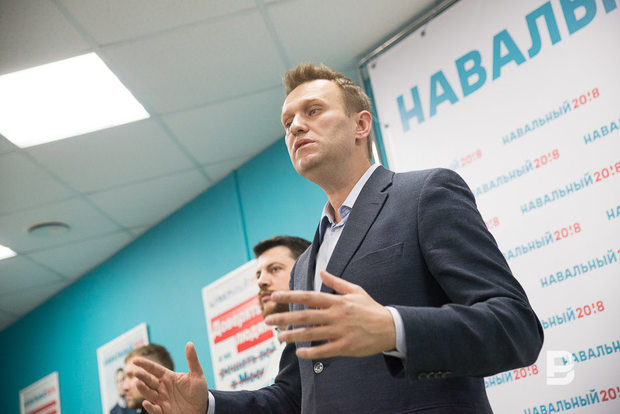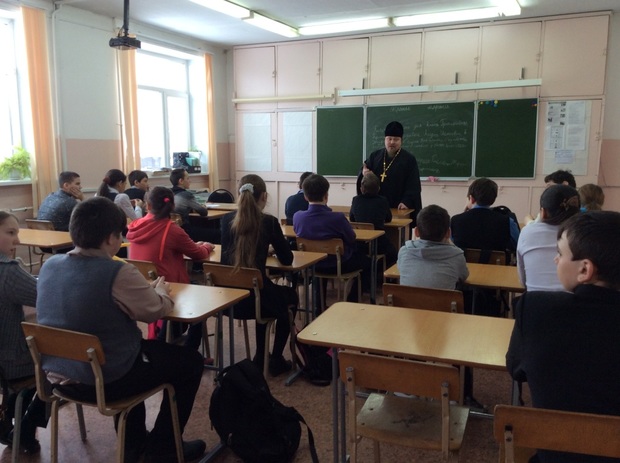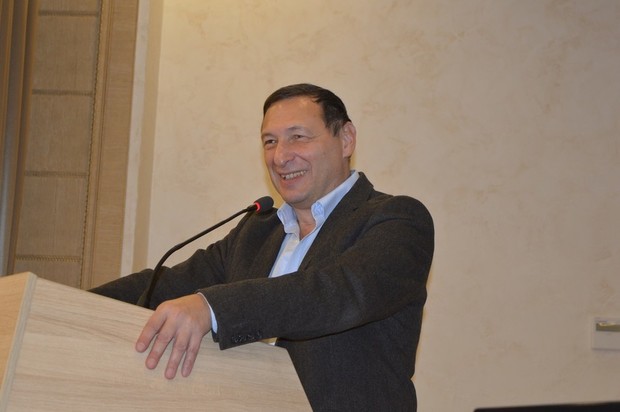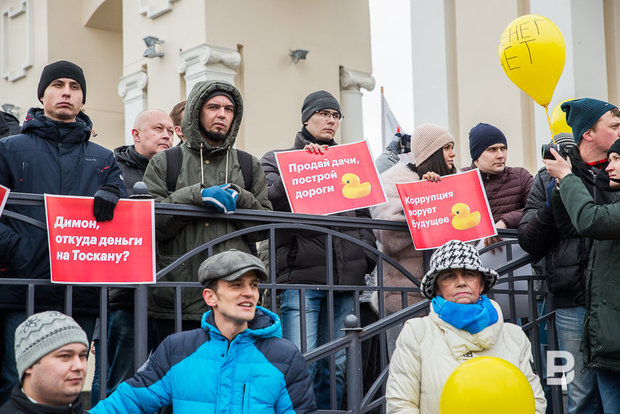Boris Kagarlitsky: ''When school gets particularly stupid, it becomes a generator of protests''
The Soviet dissident and sociologist believes that the reform of education and the coming of the Russian Orthodox Church to school are partly to blame for the rise of youth in the protest movement
Wave of protests under the banner of the fight against corruption took place last weekend in Russia. What are the true reasons of popular discontent? How the opposition leader Alexey Navalny has become the leader of the protest movement? What are scenarios of development of the processes? The answers to these and other questions read in the newspaper column of Realnoe Vremya written by well-known political scientist, Director of the Institute of Globalization and Social Movements Boris Kagarlitsky.
''He said: ''We live poorly because they steal.'' It's absolutely wrong''
There are already a number of things that everyone has seen and commented on. I have also noticed that the protest has become younger. The walking along Tverskaya Street has given a very strong impression. We saw how a group of boys and girls — seniors and freshmen, who previously clearly did not participate in any political activities and had no relationship to the protests of 2011-2012, not to mention earlier events, were coming out to the streets.
The obvious question is: why has it happened that way? In my opinion, there are certain circumstances much more fundamental than they usually think. Everyone begins to say that the reason of rejuvenated movement is the Internet, and forms of agitation, with which Navalny works, have proved to be more effective for the Internet generation, for youth who do not watch TV and live in a different information space. It's all true, but no more than the tactical aspects, which have already affected the shape of the event.
There are fundamental circumstances. In our history for the first time in decades, even since the days of the Russian revolution, but before that, there has appeared a generation that firmly understands that they will live worse than their parents. Moreover, this is a fundamental world process. All who are engaged in the United States and Western Europe note that social dynamics has not only slowed down but for the first time since the beginning of the 20th century gone in the opposite direction. Of course, I'm talking about the average process: anyway, someone will live better, someone worse. If before the general system of expectations provided that children would live not worse than their parents but even better, now it has got reversed. Even if it is not formulated with words, very often people feel it emotionally, and there is some unpleasant feeling.

''Navalny just has given this generation a clear identification marker and the object of the claims.'' Photo: Maksim Platonov
It should be added that a relative success of Russia in the early 21st century reflected on consumption growth and certain domestic comfort more aggravate than mitigate this situation. First, now the level of consumption is declining. On the other hand, improving quality and quantitative growth of consumption in the previous 10 years have partly compensated a sharp reduction in social opportunities for the population. In other words, before the children of unskilled workers became skilled, engineers or doctors. This means that they ascended by steps into a new social category. But at the beginning of the 21st century there turned out a different situation when you say: ''Yes, your children will not rise to the next level of structural social and professional hierarchy. They will not have more prestige and promising career, but they will consume more than you consumed in your youth. And life will be more comfortable: new cafés will be opened, there will be new gadgets, sorts of cheese, etc. that you didn't have.'' Then the crisis begins, and it turns out: not only they will not have a career, professional status prospects, but also consumption will decline because it's becoming more difficult to buy an iPhone. There is a generation that is frustrated at the start.
In this sense, Navalny just has given this generation a clear identification marker and the object of the claims. When hopes are frustrated, you want to focus your claims and grievances against someone or something. Navalny pronounced the formula, which is actually from an economic point of view, is absolutely ridiculous, but very comfortable as a signal to start the process.
He said: ''We are living poorly because they steal.'' It is absolutely a lie, but it is very convenient to start the process of social mobilisation against the alleged culprit. The culprits have turned out to be thieving officials. Although they are, in fact, nothing more than the perpetrators of the first row.
If you punish the thieving officials, you will find that it is no better, we have exactly the same situation as it was, because the economic conditions have not changed one iota. But it will still be a progressive phenomenon. If you expel all the thieving officials and replace them with honest ones and find that nothing has changed, you are already mobilised and organised, because you know that someone is expelled. Accordingly, you have the desire to move on, you start to make more serious claims and to think at the next level.
That is, there has been a change of generations at a certain social background.

''There can also be added stupid lessons of patriotism and all the propaganda in the school, including the priests and the lessons of Orthodoxy, which, of course, can cause nothing but radical disgust because children do not like school in general.'' Photo: pravkamchatka.ru
How the collapse of the education system has given benefit to Navalny
The second reason that all this gave rise to — the education reform, which, according to the authorities, should create a loyal unthinking generation, but it has created an unthinking generation extremely easy to subjected to a protest provocation, and not very loyal. This loyalty has nothing to cling to. They think that if people are not informed, cultured and erudite and do not have a large amount of knowledge for understanding society, they will take government propaganda and follow what the boss says. But in fact, absolutely the opposite happened because people do not perceive government propaganda because the situation is getting worse, but at the same time, they easily perceive any anti-government propaganda due to the fact that they think uncritically.
The government by its social reforms and practically a collapse of the education system has created a protest base for Navalny. In other words, if young people were highly educated, humanitarianly advanced, erudite, informed, its protest would have a completely different shape, a different ideological orientation and, oddly enough, would have been less radical, but more meaningful. Uneducated people are more prone to radicalism. A more educated person looks what consequences can be. Educated people are more cautious in their actions, that is why not radical.
There can also be added stupid lessons of patriotism and all the propaganda in the school, including the priests and the lessons of Orthodoxy, which, of course, can cause nothing but radical disgust because children do not like school in general. But when the school gets particularly stupid, it just becomes a generator of protest.
We know what role Soviet social science played at the output, what role the official Orthodoxy played in Imperial Russia. A significant part of the radical revolutionaries, and especially terrorists, was formed by the Church's schools and seminaries. We know it badly because all the time we look at the Bolsheviks, among whom there were fewer terrorists, including because among them there were fewer people educated in seminaries and theological schools. But if you look at the SRs and other, you can clearly see the connection between official Orthodoxy and the willingness to blow up tsars, priests. This environment creates people who are willing to kill those people whom they are supposed to love.
The education reform has worked out well and it will be even more effective actively working on this radical protest.

''I don't know where it will burst, but it will definitely happen because the material itself is worthless, it will burst some day. But the situation is unpredictable.'' Photo: Timur Rakhmatullin
The 2012 Elections showed that Putin at that time had quite a lot of support
The third component is that the development model just has been exhausted. I don't know where it will burst, but it will definitely happen because the material itself is worthless, it will burst some day. But the situation is unpredictable.
So, there has been a burst, which could happen because of something else: it could happen because of truckers, accidents on aircraft — anything could be. But Navalny has hit the weak point, then all system things have fallen apart. In contrast to the events of 2011-2012, the event technically started in the province, this time time zones worked. In 2011, a riot broke out in Moscow, then a week later the riots started in provinces, and then faded. Now the situation is different. The events began in the province, although the initiative came from Moscow. And Moscow was going out, knowing of the serious performances in Khabarovsk, Vladivostok, Novosibirsk.
At the same time, it is impossible to hope for a repeat of 2011-2012 in terms of countermeasures to the power because two important circumstances have changed. The first is that in 2011-2012 it was about fair elections, which was not very clear — to whom and why. It was unclear whom to choose: there will be more fair election, more honest count, and Zhirinovsky will get one extra mandate — to come out because of this?
In fact, everyone knew that the protest was against Putin. He is popular in society. When it became clear that it was against Putin, the government could mobilize the contra movement at their meetings. This movement was real, despite the fact that people were taken on buses, etc. The 2012 Elections showed that Putin at that time had quite a lot of support, and there was an asset of people who were able to implement support at lower levels.

''All the development of the movement depends on how Navalny and the company will retain its activists and ideologues from shifting all the complaints immediately on the top official.'' Photo: Maksim Platonov
''This does not mean that people will be for Navalny or against the government''
Now the situation is being different: people, the structures, which organized a movement in defense of the government in 2012, are currently suspended or demoralized. Those social groups that supported it, are also very unhappy in the course of the crisis — social well-being has changed. I would like to note that the same story with Uralvagonzavod, which was on the verge of suspension after 2014, is also very revealing. This does not mean that people will be for Navalny or against the government. But they have become less motivated, less confident, and in the best case their support of government will be inertia. On this basis, it is very difficult to mobilize people.
At the same time, the government of Medvedev and the Prime Minister himself are extremely unpopular. What is very important, unpopular not only among the opposition, the youth, but they are unpopular among the provincial and a large part of federal officials. In this sense, the attack on Medvedev has been very successful tactical move of Navalny. Here he has proved to be extremely effective tactician, who guessed that very weak point. All the development of the movement depends on how Navalny and the company will retain its activists and ideologues from shifting all the complaints immediately on the top official.
Because then they have two ways of politicizing the process. One way, if they will be able to focus on Medvedev, all this will develop in his resignation and the reformation of the government. This slogan will be clearly supported by the great majority of the population. If they resist the aggressive attack on the leader of the country, they quickly put the president in a dilemma: either he will have to dismiss the government and allow a process of change, either he will have to hold on like grim death for Medvedev.
There is also a third option: Putin will just lead this movement. It would be the strongest move, if Putin replaces Navalny and becomes Navalny himself. Let's see in what scenario everything will develop.
Editorial opinion can disagree with the author's opinion